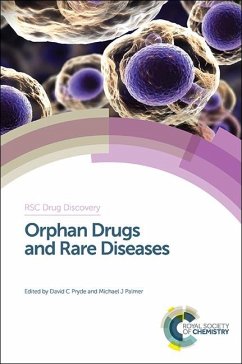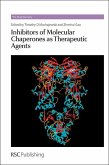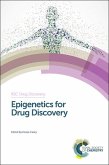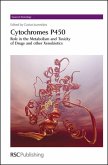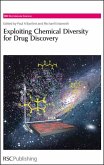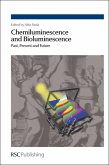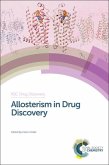Orphan drugs are designated drug substances that are intended to treat rare or 'orphan' diseases. More than 7000 rare diseases are known that collectively affect some 6-7% of the developed world's population; however, individually, any single, rare disease may only affect a handful of people making them commercially unattractive for the biopharmaceutical industry to target.
Ground breaking legislation, starting with the Orphan Drug Act that was passed in the US in 1983 to provide financial incentives for companies to develop orphan drugs, has sparked ever increasing interest from biopharmaceutical companies to tackle rare diseases. These developments have made rare diseases, and the orphan drugs that treat them, sufficiently attractive to pharmaceutical development and many pharmaceutical companies now have research units dedicated to this area of research. It is therefore timely to review the area of orphan drugs and some of the basic science, drug discovery and regulatory factors that underpin this important, and growing, area of biomedical research.
Written by a combination of academic and industry experts working in the field, this text brings together expert authors in the regulatory, drug development, genetics, biochemistry, patient advocacy group, medicinal chemistry and commercial domains to create a unique and timely reference for all biomedical researchers interested in finding out more about orphan drugs and the rare diseases they treat.
Providing an up-to-date monograph, this book covers the basic science, drug discovery and regulatory elements behind orphan drugs and will appeal to medicinal and pharmaceutical chemists, biochemists and anyone working within the fields of rare disease research and drug development or pharmaceuticals in industry or academia.
Ground breaking legislation, starting with the Orphan Drug Act that was passed in the US in 1983 to provide financial incentives for companies to develop orphan drugs, has sparked ever increasing interest from biopharmaceutical companies to tackle rare diseases. These developments have made rare diseases, and the orphan drugs that treat them, sufficiently attractive to pharmaceutical development and many pharmaceutical companies now have research units dedicated to this area of research. It is therefore timely to review the area of orphan drugs and some of the basic science, drug discovery and regulatory factors that underpin this important, and growing, area of biomedical research.
Written by a combination of academic and industry experts working in the field, this text brings together expert authors in the regulatory, drug development, genetics, biochemistry, patient advocacy group, medicinal chemistry and commercial domains to create a unique and timely reference for all biomedical researchers interested in finding out more about orphan drugs and the rare diseases they treat.
Providing an up-to-date monograph, this book covers the basic science, drug discovery and regulatory elements behind orphan drugs and will appeal to medicinal and pharmaceutical chemists, biochemists and anyone working within the fields of rare disease research and drug development or pharmaceuticals in industry or academia.
Dieser Download kann aus rechtlichen Gründen nur mit Rechnungsadresse in A, D ausgeliefert werden.

